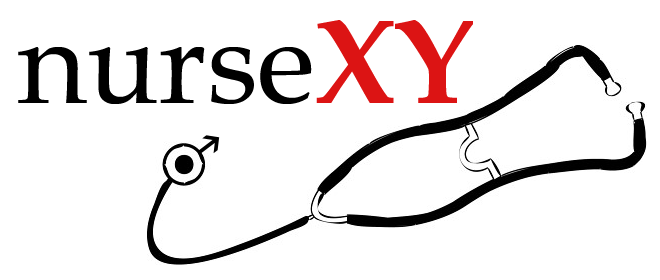Well, a couple months ago Dr. Slapstick reverted back to his old habit of doing 3 cases in a day.
He's been explicitly
Anyway, Dr. Slapstick's 3rd case of the day comes out on night shift, about 8 pm.
The patient is a 47 y/o female patient getting a valve repair. It's her 5th valve surgery. She had congenital valve problems--two surgeries as a child performed by some other obviously competent surgeon.
The next three surgeries were performed by our very own Dr. Slapstick. In fact, the reason for the 5th surgery is because Dr. Slapstick damaged a leaflet of her aortic valve during her 4th valve surgery.
Oops.
Now, because of all these previous surgeries, Dr. Slapstick decided that the sternal/mediastinal scar tissue would be so bad he needed to take a different approach--like between the posterolateral ribs, much like a thoracotomy. The anesthesiologist/perfusionist decide to cannulate the femoral artery and vein.
This is an excellent piece of clinical decision making. CT surgery is moving towards the minimally invasive route as a whole, and scar tissue on sternotomy reentries can be a real problem.
Except I have never seen Dr. Slapstick do this particular surgery from this particular approach.
Ever.
And this case ends up with an 8 hour pump time.
Regardless, the patient comes out with rock steady vitals, on very few vasoactive drips, and minimal bleeding (especially for Dr. Slapstick). Orders are to sleep the patient for 2 hours, then wake her up and extubate.
Well, along comes 2 am, and the patient has been off propofol for 4 hours and is still not responding. The night nurse is concerned (rightfully so) but the night charge nurse advises against calling the physician. You see, Dr. Slapstick has three cases scheduled the next day.
Night nurse, (God bless her, she's awesome!) decides she's going to call anyway.
Dr. Slapstick yells at her, "I can't believe you are calling me about this!! I mean really?!? I have a 6 am case!! Just turn the propofol back on and we'll deal with it in the morning." Which she documents in real time, word for word, with quotation marks.
Next morning this patient is half of my assignment, and the night nurse relays all this to me in report. I immediately start weaning down the propofol, and perform a thorough shift assessment. Pupils are a 2 and sluggish, and all the primitive reflexes I test are present.
By 8 am, I'm off propofol completely. The patient is unresponsive. Dr. Slapstick comes by shortly after. He's still miffed about being woken up the night before, assesses the patient, and tells me to continue what I'm doing.
At 10 am, the patient is still unresponsive, and isn't over-breathing the vent. I'm getting concerned, and my nursing spidey sense is going off like a klaxon horn on the bridge of a WWII warship. I do another full neuro assessment.
Oh crap.
Right pupil 3 and veeeerry sluggish. Left pupil 8 and fixed. No gag, no corneal. Potential toe flare on babinski. I can barely hide my concern from the patient family as I dash for the phone to call Dr. Slapstick.
Dr. Slapstick is in the OR. I relay the message through the circulating nurse, and the reply, incredibly, is to turn the propofol back on, and he'll be out to assess the patient when he's through in about an hour.
I ask for a neurologist consult, but do not receive one. I ask for a head CT, but do not receive one.
Completely dissatisfied, I call the anesthesiologist who worked the case, trying to get a back door order. The anesthesiologist is unwilling to countermand Dr. Slapstick. The charge nurse calls the house supervisor, who calls administration. Nobody is willing to go out on a limb.
The hours creep by. Calls to Dr. Slapstick's OR reveal his current case is not going well. Complications abound. I've updated the family, because that's what I do. I don't lie to families, and I keep them informed. They are besides themselves, and I am too.
Dr. Slapstick finally shows up at the bedside 4, (FOUR!!) hours later. Does a quick 5 minute exam and has me consult a neurologist. The neurologist is at the bedside within 10 minutes, does his exam and we are in the CT scanner in another 10 minutes. The neurologist stays in the control room with us and reads the CT slice by slice as it comes up.
Massive diffuse global anoxic injury. Oh and she's partially herniated, and it's progressing.
After meeting with the neurologist the patient's husband tells me he's preparing himself for the hardest conversation of his life. He's headed home to tell his 5 year old daughter that her mother isn't coming home.
---------------------
Two weeks later I get summoned to a Root Cause Analysis (RCA) for this patient's "unexpected negative outcome." Dr. Slapstick proceeds to attempt to blame the entire debacle on nursing, stating that we "failed to communicate the seriousness of the situation to him."
All I can say is thank goodness for thorough charting and for my less than shy mouth. And my healthy belief that doctors put their pants on just like everyone else.
One leg at a time.
Two days later, there's a note up in the break room on the unit from Dr. Slapstick. It seems he's leaving to pursue other opportunities in an outlying community where he has the privilege to develop a CT surgery program. He trips all over himself thanking us for the excellent care we always gave his patients.
Sometimes administration finally does get it right.
I'm sure the patient's 5 year old daughter really appreciates that.
